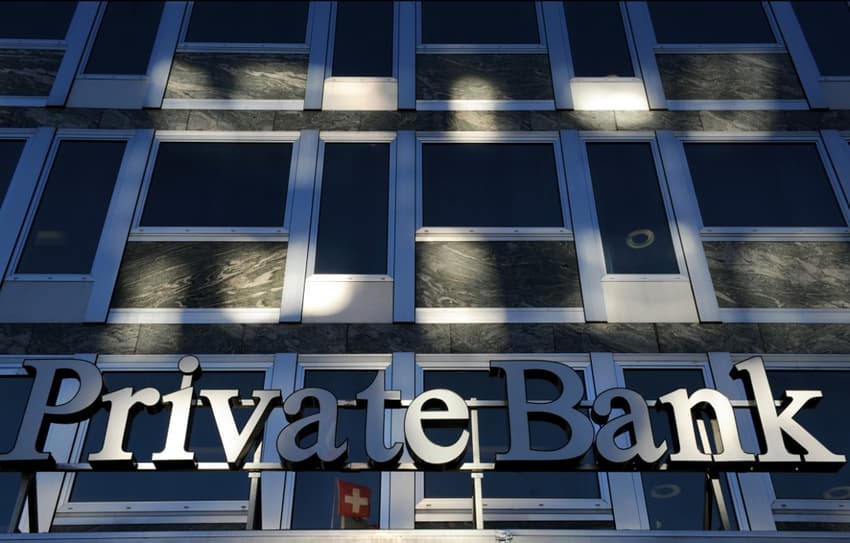Why Switzerland is no longer on the EU's black list of tax havens

The EU removed Switzerland and four other
countries from its grey list of tax havens on Thursday, giving one of the global hubs for multinational tax schemes the all clear.
"Albania, Costa Rica, Mauritius, Serbia and Switzerland have implemented ahead of their deadline all necessary reforms to comply with EU tax good governance principles," the bloc's 28 finance ministers said.
"If Switzerland is off this list, it is a success for me. The best list is the shortest," said Pierre Moscovici, European Commissioner for Economic Affairs, at a press conference in Luxembourg.
What is the EU list of tax havens?
Created in December 2017, it lists countries that are allowing tax evasion by corporations and individuals. Such schemes enable rich foreigners to avoid paying taxes in their own countries. The goal of this list is to “shame” tax haven nations into reforming their systems by bringing them up to the EU standards.
The 28 EU finance ministers drew up the lists -- that followed several scandals including Panama Papers and LuxLeaks -- in the hopes of "naming and shaming" countries into better combating tax evasion by multinationals and wealthy individuals.
Blacklisted countries face only limited sanctions, consisting of freezing them out of European aid or development funding.
Why was Switzerland on that list?
Switzerland was placed on the list on December 5th, 2017 because it intentionally attracted foreign investors by allowing corporations and wealthy individuals to pay a low, lump-sum tax on the money they kept in Swiss banks.
Why is Switzerland off the list now?
In a referendum held on May 19th of this year, Swiss voters accepted the Federal Act on Tax Reform and AVS Financing (TRAF). This legislation introduced major changes in the Swiss tax system by ending some preferential tax schemes and replacing them with new regulations which are in line with international standards. This tax reform, which will enter in force in 2020, means the Swiss are now compliant with EU demands.
Does the notorious Swiss banking secrecy still exist?
It depends. For Swiss residents who do not hold double nationality, the bank-client confidentiality still exists. But for foreigners, banking secrecy is a thing of the past, as Switzerland now cooperates with the EU and other nations in the exchange of their foreign clients’ financial information. In fact, many banks are now reluctant to work with overseas clients.
Comments
See Also
"Albania, Costa Rica, Mauritius, Serbia and Switzerland have implemented ahead of their deadline all necessary reforms to comply with EU tax good governance principles," the bloc's 28 finance ministers said.
"If Switzerland is off this list, it is a success for me. The best list is the shortest," said Pierre Moscovici, European Commissioner for Economic Affairs, at a press conference in Luxembourg.
What is the EU list of tax havens?
Created in December 2017, it lists countries that are allowing tax evasion by corporations and individuals. Such schemes enable rich foreigners to avoid paying taxes in their own countries. The goal of this list is to “shame” tax haven nations into reforming their systems by bringing them up to the EU standards.
The 28 EU finance ministers drew up the lists -- that followed several scandals including Panama Papers and LuxLeaks -- in the hopes of "naming and shaming" countries into better combating tax evasion by multinationals and wealthy individuals.
Blacklisted countries face only limited sanctions, consisting of freezing them out of European aid or development funding.
Why was Switzerland on that list?
Switzerland was placed on the list on December 5th, 2017 because it intentionally attracted foreign investors by allowing corporations and wealthy individuals to pay a low, lump-sum tax on the money they kept in Swiss banks.
Why is Switzerland off the list now?
In a referendum held on May 19th of this year, Swiss voters accepted the Federal Act on Tax Reform and AVS Financing (TRAF). This legislation introduced major changes in the Swiss tax system by ending some preferential tax schemes and replacing them with new regulations which are in line with international standards. This tax reform, which will enter in force in 2020, means the Swiss are now compliant with EU demands.
Does the notorious Swiss banking secrecy still exist?
It depends. For Swiss residents who do not hold double nationality, the bank-client confidentiality still exists. But for foreigners, banking secrecy is a thing of the past, as Switzerland now cooperates with the EU and other nations in the exchange of their foreign clients’ financial information. In fact, many banks are now reluctant to work with overseas clients.
Join the conversation in our comments section below. Share your own views and experience and if you have a question or suggestion for our journalists then email us at [email protected].
Please keep comments civil, constructive and on topic – and make sure to read our terms of use before getting involved.
Please log in here to leave a comment.